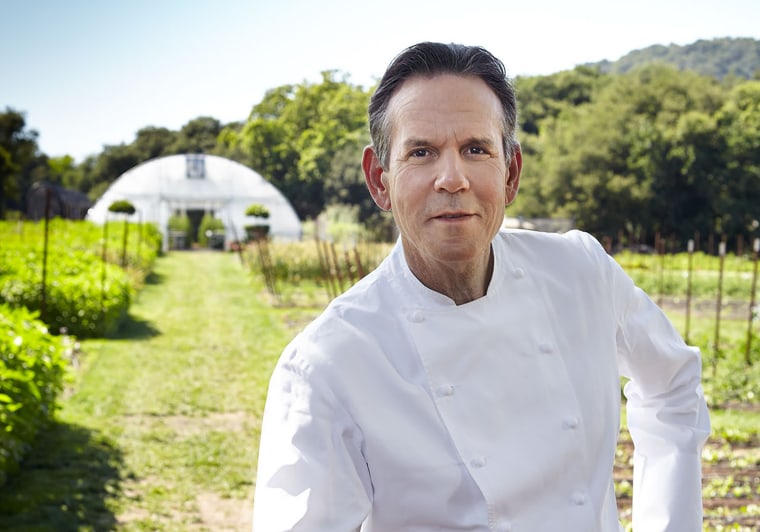A great meal at a restaurant is not just about the food and the wine; it’s an opportunity to make emotional connections. And, over the years, the staff at restaurants like The French Laundry have been dedicated to creating memorable experiences for guests both from our communities and around the world. They take pride in that effort, which lies at the essence of everything we do.
But never in the past 26 years since opening The French Laundry or my other restaurants across the country did anyone think we would find ourselves in the state we are in today. It’s been devastating to close our doors and say goodbye to our daily routine — and, with it, the camaraderie we experienced with our teams and guests. And now my employees, comprising 1,200, can no longer perform their roles in New York, Florida, Nevada and California.
They are not alone: every restaurant across the country has been shuttered by various governments — we hope temporarily — in their efforts to try and stem the spread of the coronavirus in our cities and towns. Business owners, large and small, in the restaurant industry are trying to determine how we can sustain ourselves during this time so that we might reopen when it is over. We are trying to do what we can for employees who are suddenly out of work through no fault of their own.
Restaurant closures don’t just affect the finances of owners, servers, chefs and administrative support teams. As time goes by, more and more, people are realizing how vital restaurants are for local communities, providing work for farmers, fishermen and foragers; general contractors, plumbers, HVAC specialists and electricians who work on our restaurants; and launderers, florists, designers, and countless others who create the atmospheres we look for.
Many of us, to protect our restaurants and our employees, invested in business interruption insurance. We recognized that if the unexpected happened and we were forced to shut down, we would have a safety net. Instead of taking as much as we could in profits, we paid premiums to insurance companies, purchasing specific coverage for civil authority shutdowns — to cover us in the case that a government entity mandated closures. Although rare, a civil authority shutdown can be devastating to a restaurant that depends upon a large, well-trained staff.
We all paid faithfully, with the expectations that we would have someone on our side. We thought we were in good hands.
But now, when restaurateurs are contacting our insurers, we’re being told that the civil authority shutdown orders are not covered. Why? They tell us that all policies exclude pandemics. We've read our policies; that is simply not true. At no time were we ever told that civil authority shutdowns from a global pandemic were excluded. The word pandemic does not appear in any of our policies. (In fact, some policies actually included additional coverage for loss due to a virus or pandemic outbreak.)
But insurers are not paying a penny no matter what the policies say, even though they have $822 billion in claim reserves — our money, that we’ve been paying them over the years to protect our businesses in events like this. They say we do not have coverage for the civil authority shutdowns because the pandemic must cause a dangerous condition to property.
But civil authorities (like the National Institutes of Health and the Centers for Disease Control and Prevention) and the World Health Organization are telling us that the virus may persist on surfaces for a few hours or up to several days, which creates a dangerous property condition. To avoid paying, the insurance industry has denied the dangerous property condition caused by the pandemic. The insurance industry has proven they will not only misrepresent the wordings of our contracts, but will also go so far as to deny the dangers of the pandemic itself.
A defining — and inspiring — trait about our profession is that we all come together in times like these to support one another; it's what we do. That’s why Chefs Wolfgang Puck, Daniel Boulud, Jean-Georges Vongerichten, Jérôme Bocuse, Dominique Crenn, Edouardo Jordan and I teamed up with attorney John Houghtaling, the nation's top insurance specialist whose law firm paved the way for the $246 billion U.S. tobacco settlement, and filed the nation’s first court action to compel insurers to honor losses from this pandemic.
Together, we founded Business Interruption Group (BIG) — a nonprofit — to insist that insurers pay losses caused by the coronavirus to all restaurants, both large and small, that are owed. Within two weeks of our forming BIG, President Donald Trump told us on a call that he understood how unfair the insurers were being with us and has since shared his support. He asked to see our policies himself. We sent them to him, and at last Friday’s press briefing, he said that he had seen the lack of exclusions for himself and the insurance companies should not get away with this.
More than 1,000 restaurant groups and industry associations — including The Culinary Institute of America, Relief Opportunities for All Restaurants, James Beard Foundation, Independent Restaurant Coalition, NYC Hospitality Alliance, Ment’or, HGR Group Insurance, Atelier Crenn, TAO Group Hospitality, and Southern Glazer’s Wine & Spirits — are lending their support to this campaign to demand that the insurance industry do the right thing here. We are insisting that insurers honor their business interruption policies, and acknowledge that the state-mandated closures of our businesses are covered by the civil authority clauses in those policies. We want them to play fair.
We are here to try and call for protection for millions of workers, vendors, purveyors, farmers, fishermen, foragers, restaurant owners, caterers — the layers and layers of people who contribute to this American pastime.



